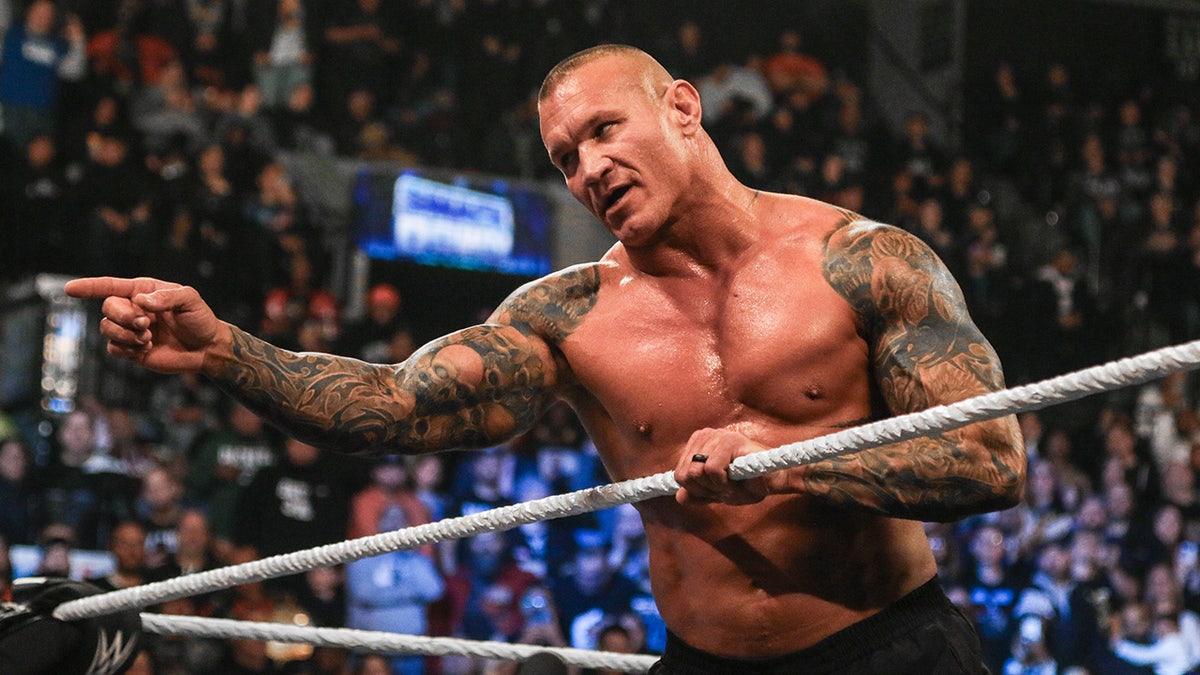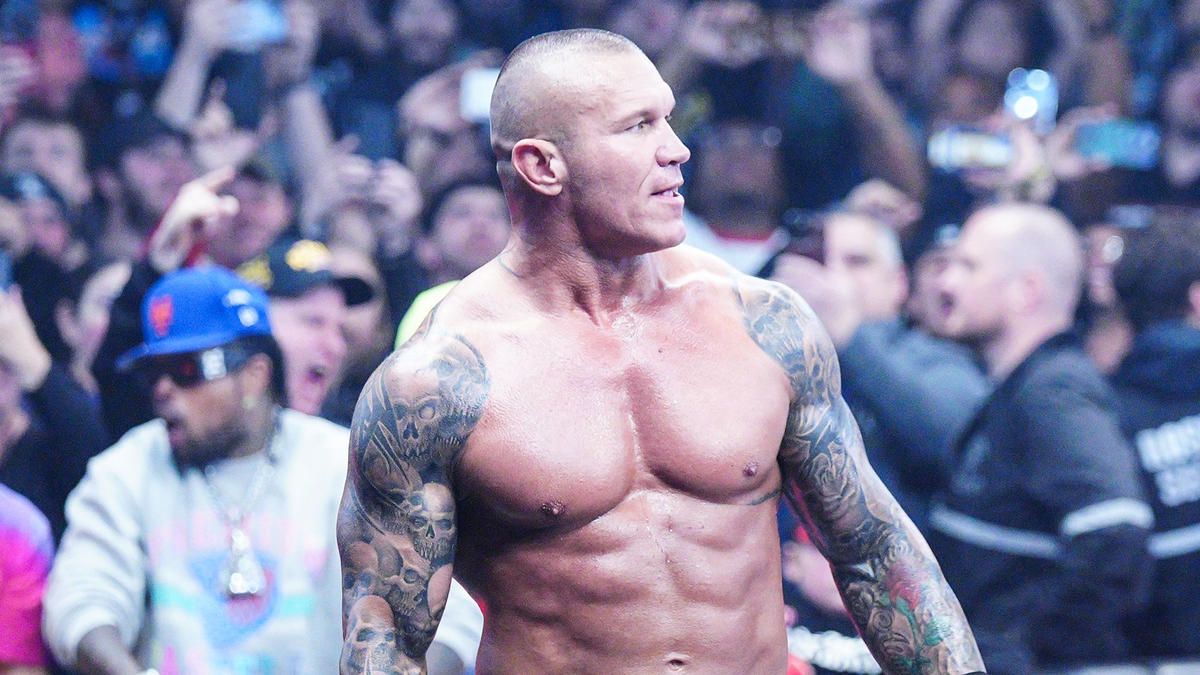Randy Orton And The Journey Of A Name
Names, you know, are pretty interesting things, aren't they? They stick with us, in a way, for our whole lives, shaping how we're seen and how we might even see ourselves. Every name carries a bit of a story, a history, and sometimes, a whole lot of different ideas that have gathered around it over time. It's really quite something to think about, how a simple word can hold so much weight and personal meaning for someone, or even for many people who happen to share it.
When we hear a name like "Randy," it probably brings to mind a variety of thoughts, doesn't it? For some, it might just be a common name they've heard before, perhaps belonging to a friend, a family member, or even a public figure. It’s a name that has, in some respects, been quite present in places like the United States and Canada for a good while, so it tends to feel familiar to many folks who live there. It's just one of those everyday names you come across.
Yet, like many words we use, the name "Randy" has a background that is, actually, a little richer than you might first guess. It carries with it a past, connections to other names, and even a few different meanings that have popped up over the years. So, when you consider someone like Randy Orton and the name he carries, it’s not just about the person themselves, but also about the history and the various ways that name has been understood and used. It's kind of fascinating to pull back the layers, you know?
Table of Contents
- The Name Randy - A Closer Look
- What Does the Name Randy Really Mean?
- Why Do Names Like Randy Change in Popularity?
- How Does a Name's Meaning Affect Perception?
- Is Randy a Common Name Today?
- The Many Faces of Randy - Beyond the Person
The Name Randy - A Closer Look
When we talk about "Randy," we're usually referring to a given name, something parents pick out for their child. It's not a surname, for example, but rather a first name, a personal identifier that someone carries from birth. This kind of name is, in some respects, a very common practice across many cultures, providing a way to distinguish one person from another right from the start. So, in this instance, Randy functions as a proper given name, typically used for boys, though names can, of course, sometimes cross traditional gender lines over time.
This particular name, Randy, has enjoyed quite a bit of popularity, especially in the United States and Canada. For a good stretch of time, it was a pretty common choice for new parents. You could say it had a certain appeal, perhaps because it sounds friendly, or maybe it just fit the naming trends of the era. It's interesting to consider how certain names just seem to resonate with people during different periods, becoming widely adopted before perhaps fading a bit. This popularity meant that, for a while, you'd likely encounter quite a few people named Randy, just by going about your day.
As a name, Randy is primarily considered a masculine choice. While some names are, basically, used for both boys and girls, Randy has typically been assigned to males. This is a common pattern with names, where many are strongly associated with one gender. It’s part of how we categorize and understand names in our daily conversations, really. So, when you hear "Randy," your mind usually goes to a male individual, which is just how the name has generally been used and perceived.
Origins and Evolution of the Name Randy Orton and
The story of the name Randy is, actually, a little bit like a family tree. It didn't just appear out of nowhere; it came from other names that were around before it. We find that it was originally derived from names such as Randall and Randolph. These older names, in a way, served as the foundation for Randy, which is a shorter, perhaps more casual, version of them. It's pretty common for names to get shortened or changed over time, isn't it? People often look for something a bit snappier or easier to say.
What's truly interesting is that the name Randy also has a connection, in some respects, to the name Miranda. This might seem a little surprising, given that Miranda is generally a feminine name. However, names can sometimes have shared roots or influences that aren't immediately obvious. It shows how names can intertwine and evolve in ways that might not always follow a straight line. So, the journey of the name Randy, you know, involves a few different paths and connections, making its background a little more varied than you might expect.
These origins, from names like Randall and Randolph, point to Randy having an English background. Many names we use today have roots in different languages and cultures, and Randy is no exception. Its English heritage means it carries a certain linguistic lineage, tying it back to a long history of naming conventions in that part of the world. It’s kind of cool to think about how a name can carry echoes of its past, linking it to places and times long gone, basically.
The Name Randy - A Profile
| Detail | Description |
|---|---|
| Name Type | Given Name |
| Primary Gender | Masculine |
| Origin Language | English |
| Derived From | Randall, Randolph, and Miranda |
| Geographic Popularity | United States and Canada (historically) |
| Historical Trend | Popular until the 1990s, then declined |
| Common Meanings | Having a coarse manner; Sexually aroused/eager |
What Does the Name Randy Really Mean?
Now, this is where things get a bit more intricate, because the word "Randy" actually carries a few different meanings, and some of them are quite distinct from others. When we look at dictionary entries, we find that one meaning describes someone as having a "coarse manner." This suggests a person who might be a little rough around the edges, perhaps not particularly refined in their behavior or speech. It’s a way of describing a certain kind of demeanor, you know, a sort of bluntness or lack of polish. This particular meaning points to how words can describe personality traits, basically.
The English language is, of course, full of words that have multiple interpretations, and "Randy" is a pretty good example of that. How we use a word in a sentence can really change what it means. For instance, if you're talking about someone's actions, the word might take on one sense, but if you're describing their feelings, it could mean something else entirely. It’s a bit like playing with building blocks, where the same pieces can create very different structures depending on how you arrange them. This flexibility is just a part of how language works, really.
Meanings and the Word Randy Orton and
Beyond the idea of a "coarse manner," the word "Randy" also has, frankly, a much more common and specific meaning in everyday speech, particularly in certain contexts. It's often used to describe someone who is "feeling a lot of sexual desire." This meaning is, arguably, the one that most people think of when they hear the word used as an adjective. It points to a state of being sexually excited or aroused, or perhaps sexually eager or lustful. This particular definition is quite direct and leaves little room for other interpretations when used in this way.
It's interesting to consider how a single word can have such different shades of meaning, isn't it? One moment it might refer to a general disposition, and the next, it's about a very specific physical or emotional state. The context really matters here, and it's something that native speakers pick up on pretty quickly. So, when you hear the word "Randy" in conversation, you're usually relying on the surrounding words and the situation to figure out which meaning is intended, which is, basically, how we make sense of many words in English.
The Oxford English Dictionary, for instance, lists five different meanings for the word "Randy." This just goes to show how words can, in fact, collect various definitions over time, some becoming more prominent than others. It's like a word gathering different outfits to wear depending on the occasion. For a deeper look, the OED provides definitions, how the word is used, and even examples from written works. This kind of detailed information helps us get a full picture of a word's life, you know, its various applications and historical journey.
Why Do Names Like Randy Change in Popularity?
Names, like fashion or music, tend to go through phases of popularity. A name might be incredibly common for a decade or two, and then, for reasons that are sometimes hard to pin down, it starts to fade from common use. This was, apparently, the case for the name Randy. It was quite a popular choice for parents up until the 1990s, seeing a lot of use during that period. Then, something shifted, and it began to fall out of favor, with fewer and fewer babies being given that name. It's a pretty typical pattern for many names, actually.
There are, you know, many reasons why a name might lose its appeal. Sometimes, it's just a matter of changing trends; what sounds fresh and modern one year might sound a bit dated the next. Other times, a name might become strongly associated with a particular person or event, which can either boost its popularity or cause it to decline. It's a bit like a cultural tide, where certain names are carried in and out with the ebb and flow of public perception. This dynamic makes the study of name popularity quite a fascinating field, really.
The Shifting Appeal of Randy Orton and
In the case of the name Randy, its decline in popularity after the 1990s seems to be linked to how the word itself came to be understood more widely. The source text mentions that it fell out of favor "after it was given a" certain connotation, which likely refers to the more sexually charged meaning of the word. When a name becomes too strongly tied to a specific, perhaps less desirable, meaning, it can certainly affect how parents feel about choosing it for their children. It's a pretty powerful influence, in some respects, how language can shape personal choices.
This kind of shift in a name's standing is, basically, a reflection of broader cultural attitudes and how language evolves. Words and names aren't static; they pick up new associations and meanings over time, and these can influence how they are perceived by the public. So, for the name Randy, its journey from being a widely liked choice to one less frequently picked is, arguably, a story about how a word's multiple meanings can impact its overall standing in society. It's a very clear example of how language lives and breathes, really.
How Does a Name's Meaning Affect Perception?
It's pretty clear that the meanings attached to a name can have a big impact on how people perceive it, and, by extension, how they might perceive someone who carries that name. When a word like "Randy" has, as a matter of fact, a meaning that is quite direct and refers to sexual arousal, it can create a strong, perhaps unavoidable, association. This means that even if a person named Randy is simply going about their day, the name itself might carry this particular connotation for others, whether fairly or not. It's just how human minds often work, linking words to their most prominent meanings.
This phenomenon is, in a way, why parents often think so carefully about the names they choose for their children. They want to pick something that sounds nice, but they also consider what feelings or ideas the name might evoke. A name with multiple meanings, especially one that has a more colloquial or suggestive sense, can sometimes be seen as a bit of a challenge. It's about how a name fits into the social fabric, you know, and what kind of first impression it might make. So, the meaning of a name is, actually, a pretty important part of its overall identity.
The Impact of Randy Orton and Its Connotations
The very existence of different meanings for the word "Randy" means that someone with that name, like Randy Orton, might find themselves in situations where the name's other senses come into play, even if unintentionally. For instance, the source text gives a very specific example of the word "Randy" used in a sentence: "If you're feeling randy, give me a call and i'll come round and give you some hot lovin'." This kind of usage highlights the explicit nature of one of the word's definitions. It's a very direct and, frankly, quite suggestive phrase, which just goes to show the kind of associations the word can carry.
It’s important to remember that this example from the source text is about the *word* "Randy" as an adjective, not about the person Randy Orton. However, when a name shares its sound and spelling with a word that has such a strong and specific meaning, it’s, honestly, hard to completely separate the two in people’s minds. This is why the connotations of a word can have such a powerful, if subtle, effect on a name's public image. It's just a part of how language and perception are tied together, really, creating a kind of linguistic echo.
Is Randy a Common Name Today?
Given the information that the name Randy started to fall out of favor after the 1990s, it's fair to say that it's probably not as common a name today as it once was. Naming trends move pretty quickly, and what was popular a few decades ago might be considered less so now. This doesn't mean the name has disappeared entirely, of course, but it suggests that new parents are, basically, less likely to choose it for their children these days. It’s a pretty typical pattern for many names that have had their moment in the sun.
The shift in popularity for names like Randy often reflects broader cultural changes. Maybe new names emerge that capture the public's imagination, or perhaps there's a collective move away from names that have become too common or that carry associations that are no longer desirable. It's a bit like a slow, ongoing conversation about what sounds "right" for a new generation. So, while you'll still meet people named Randy, especially those born before the 1990s, the name's overall presence in the population is, arguably, much smaller now.
Randy Orton and Present Day Usage
When we think about someone like Randy Orton, who has a well-known public profile, it’s interesting to consider how their prominence might interact with the

WWE star Randy Orton says he wasn't ready to be youngest champion at 24

Randy Orton gave fans major hint on his future after WWE return

Randy Orton's Net Worth, Signature Move RKO and Best Matches in WWE